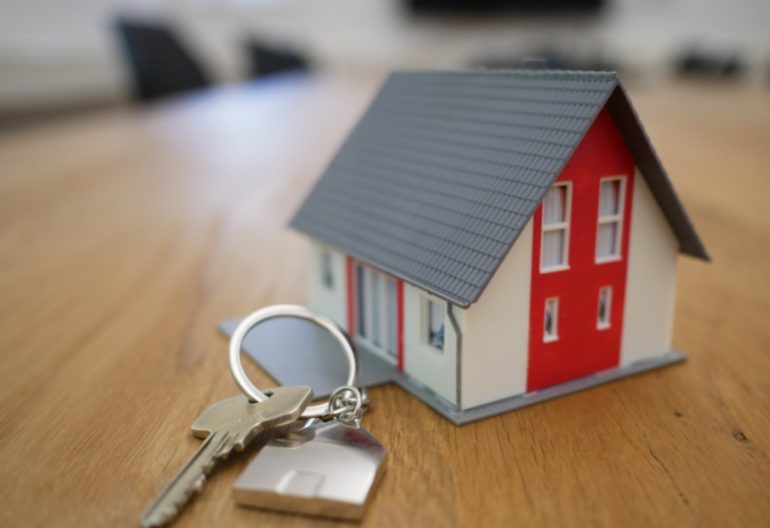
If you live in an area that has seen unprecedented demand for housing recently you may be wondering if it is a good time to sell your rental property. But, if you’ve been relying on that monthly rental income and hate to give it up, you definitely want to review your options.
Here are three major questions to ask about your rental situation before you put up that “For Sale” sign.
1. What Is The Real Annual Return On Your Investment In That Property?
When I ask landlords who own one or two rentals what their investment return has been on the rental, they often answer with how much cash goes into their checking account every month.
But that’s only part of the story. To really evaluate if you are getting a “good” return on your investment, you need to know a few numbers.
First, the number you need to know is NET rental income. This will be the amount of rent you receive from your tenants less the ongoing costs to maintain the property, utilities, mortgage payments, property taxes, etc.
While rent comes in every month, many of those repairs can be lumpy expenses. Some years they are major expenses and some years minor expenses. If you have periods of no rent due to a turnover in tenants, you’ll need to factor that into the equation as well.
Here’s a simplified example of how to calculate your current ROI on a property worth $300,000:
Rent Received Per Month = $1,500 x # of Months Rented Per Year (12) = $18,000
Subtract Mortgage Payment Per Month = $500 x 12 = $6,000
Subtract Property Taxes Per Year = $4,000
Subtract Average Maintenance Per Year = $2,000
Your Net Rental Income would then be equal to $6,000/year.
Now, what did you pay for the property? Let’s assume, after the mortgage, you had to put
down $60,000.
So, your investment is $60,000 and you are receiving $6,000 per year in income.
$6,000/$60,000 = 10% Return.
Pretty good! And that is not even factoring in any appreciation on the property value itself. If your property’s value has gone up by 20% and you’ve owned it for ten years, you can add another 2% to that ROI.
Why would you ever sell with that kind of return? A few reasons:
- You are tired of being a landlord. It can be hard work!
- The real estate market in your area may be overheated and will cool off soon.
- Your property may need major work in the next few years.
- Inflation is increasing and you can’t increase your rents to keep up.
- You want a more liquid investment for future cash flow needs.
Conversely, you may find that after doing the math on what you are spending vs making on that rental property, the return on investment isn’t as high as you would like. This means there may be other opportunities with better returns.
2. What Will Be The Capital Gains If You Sell?
In addition to understanding your annual return on investment above, you also want to know how much your investment has appreciated. While it is nice to see a big increase, that also means you are going to be paying some capital gains tax. The larger the difference between your sales proceeds and your cost basis, the more taxes you are going to pay.
This time you need to know your true cost basis in the property. How much did you pay originally? Add to that any remodeling or permanent improvements you’ve made over the time you’ve owned it. But then you also have to subtract any depreciation you’ve already recognized (known as depreciation recapture).
Going to owe a lot to the IRS? Don’t despair yet. There are ways for a Financial Advisor to help reduce or eliminate that capital gains tax. If you happen to have capital losses in another investment, it may be a good year to recognize those. This will allow you to offset some of these rental property capital gains.
You may want to consider a 1031 exchange, where you buy a “like-kind” property with the proceeds of your rental property within a certain time frame. This will defer any capital gains indefinitely.
Sometimes it may make sense to consider making the rental property your primary residence for a period of time. As long as you have lived in it for two of the last five years (and that does not have to be consecutive), you can claim the primary residence exclusion on gains. This would exclude $250,000 in gains for an individual owner and $500,000 for a couple.
If you don’t need all the money at once, you can also consider doing an installment sale to your buyer. This will allow you to spread out the capital gains tax over the same period of time as the payments on the installment sale.
Paying capital gains isn’t the worst thing in the world (it just means you made money on your investment), but a little advance planning before your sale could reduce your tax bill.
3. What Will You Do With The Proceeds?
Now you know your true return on this investment and how much you might have to pay in capital gains tax. What are you going to do with the proceeds?
If you need to replace that cash flow from the rental income, you are going to need to make sure you are investing the proceeds in a portfolio that can earn the amount you need. Right now, a well-diversified growth portfolio is expected to earn an average return between 6-7% per year. Will that provide the cash flow you need?
Alternatively, you may need to do a 1031 exchange into a rental income producing property as well. Or maybe the installment sale proceeds will provide you with excess income for a few years that you can sock away for future distributions.
Just make sure you are not foregoing income that’s needed by putting the proceeds into a non-income producing purchase of goods or services.
What’s Next?
In summary, there are several factors to consider with rental property. Your true net income; your potential capital gains and your options for replacing rental income if needed.
Make sure you work with your financial advisor and tax preparer to understand all the pieces before putting up that “For Sale” sign.








